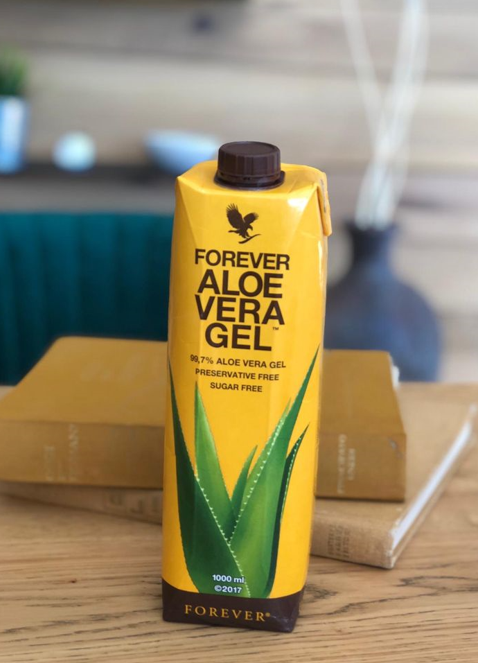The first question that comes to mind while thinking about Aloe vera and Is benefits is “Can you Eat Aloe Vera”??
Well the answer is, there are over 400 species of aloe plants, but only one proclaimed as the best, aloe vera which is edible. Aloe vera has been celebrated for centuries for its soothing, cooling and moisturizing properties.
Aloe vera juice is a rich source of antioxidants, which help fight free radicals. Aloe vera juice is also an excellent source of:
- Vitamin C
- Vitamin A
- Vitamin E
- Beta-carotene
- Folic acid
- Calcium
- Magnesium
Aseptically processed with no added preservatives and in packaging made with 100% recyclable materials, Forever Aloe Vera Gel, Forever Aloe Peaches and Forever Aloe Berry Nectar pack in all the power of pure aloe vera – just as nature intended.
Forever Aloe Vera Gel is Stabilized Aloe Vera Inner Leaf Gel certified by International Aloe Science, Halal, Kosher, Islamic Seal and Leaping Bunny.
Benefits of Aloe Vera Juice:
- Staying Hydrated and Boosting Performance: Staying hydrated is essential for overall health and can aid in recovery after intense exercise. While aloe vera juice can be hydrating, it’s a matter of personal preference whether to choose it over other hydrating options like coconut water.
- May Help Liver Function: Aloe vera juice can contribute to liver health due to its hydrating properties and phytonutrient content, but it should not be considered a primary treatment for liver conditions.
- Skin Benefits: Aloe vera is rich in antioxidants and vitamins that can benefit the skin. It can help protect against UV damage and promote skin health.
- Digestive Benefits: Aloe vera contains enzymes that may aid in digestion and promote regular bowel movements by increasing intestinal water content.
- Heartburn Relief: Some people find relief from heartburn symptoms by consuming aloe vera juice, as it can help regulate stomach acid secretion.
Precautions and Side Effects:
- Quality Matters: It’s crucial to choose high-quality aloe vera juice that is pure and organic, without fillers or additives. Non-decolorized or unpurified aloe vera juice can contain substances like anthraquinone, which can lead to unpleasant side effects like diarrhea and cramping.
- Consult a Doctor: If you plan to use aloe vera juice for medicinal purposes, especially if you have underlying medical conditions or are taking medications, it’s essential to consult with a healthcare professional. They can advise you on whether aloe vera is safe and appropriate for your specific situation.
- Read Labels: Always read product labels carefully to ensure you are getting a pure and high-quality aloe vera juice.
Aloe vera juice can have potential health benefits, but individuals should exercise caution, choose the right product, and consult with a healthcare provider before incorporating it into their diet, especially for medicinal purposes. Additionally, aloe vera should not replace any prescribed treatments for specific medical conditions without professional guidance
